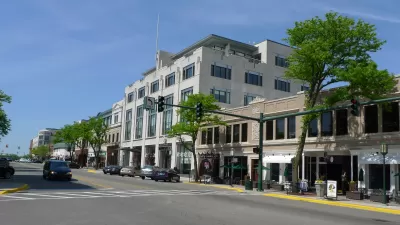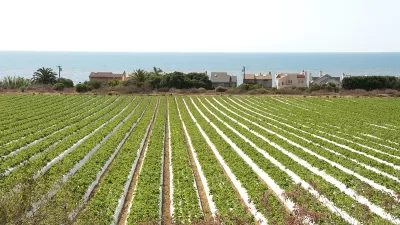Top problems with form-based codes, and how to fix them.

"We often talk about how places can hack their zoning code to enable livability. The Project for Code Reform is taking this idea to the next level, helping cities look for the lowest hanging fruit on the walkability front. However, for places on the cutting edge of land use reform that have already adopted a form-based code, there’s a different sort of code hack."
"As form-based codes celebrate their 40th birthday, there’s been plenty of time for some things to go wrong. A group of internationally experienced coders — Susan Henderson, Marina Khoury, Matt Lambert, Mary Madden, Bill Spikowski, and Hazel Borys — have compiled our top concerns. We intend to work with other coders to address the majority of these points at a Code Hackathon on June 12 at CNU Louisville. If you can’t make it to Louisville in June, follow the Congress at hashtag #CNU27 for hacks to address these persistent problems."
The coding crew goes on to discuss their top 11 pet peeves for how form-based codes can go wrong.
FULL STORY: Code Hackathon: What can go wrong with form-based codes?

Planetizen Federal Action Tracker
A weekly monitor of how Trump’s orders and actions are impacting planners and planning in America.

Maui's Vacation Rental Debate Turns Ugly
Verbal attacks, misinformation campaigns and fistfights plague a high-stakes debate to convert thousands of vacation rentals into long-term housing.

San Francisco Suspends Traffic Calming Amidst Record Deaths
Citing “a challenging fiscal landscape,” the city will cease the program on the heels of 42 traffic deaths, including 24 pedestrians.

Amtrak Rolls Out New Orleans to Alabama “Mardi Gras” Train
The new service will operate morning and evening departures between Mobile and New Orleans.

The Subversive Car-Free Guide to Trump's Great American Road Trip
Car-free ways to access Chicagoland’s best tourist attractions.

San Antonio and Austin are Fusing Into one Massive Megaregion
The region spanning the two central Texas cities is growing fast, posing challenges for local infrastructure and water supplies.
Urban Design for Planners 1: Software Tools
This six-course series explores essential urban design concepts using open source software and equips planners with the tools they need to participate fully in the urban design process.
Planning for Universal Design
Learn the tools for implementing Universal Design in planning regulations.
Heyer Gruel & Associates PA
JM Goldson LLC
Custer County Colorado
City of Camden Redevelopment Agency
City of Astoria
Transportation Research & Education Center (TREC) at Portland State University
Jefferson Parish Government
Camden Redevelopment Agency
City of Claremont



























